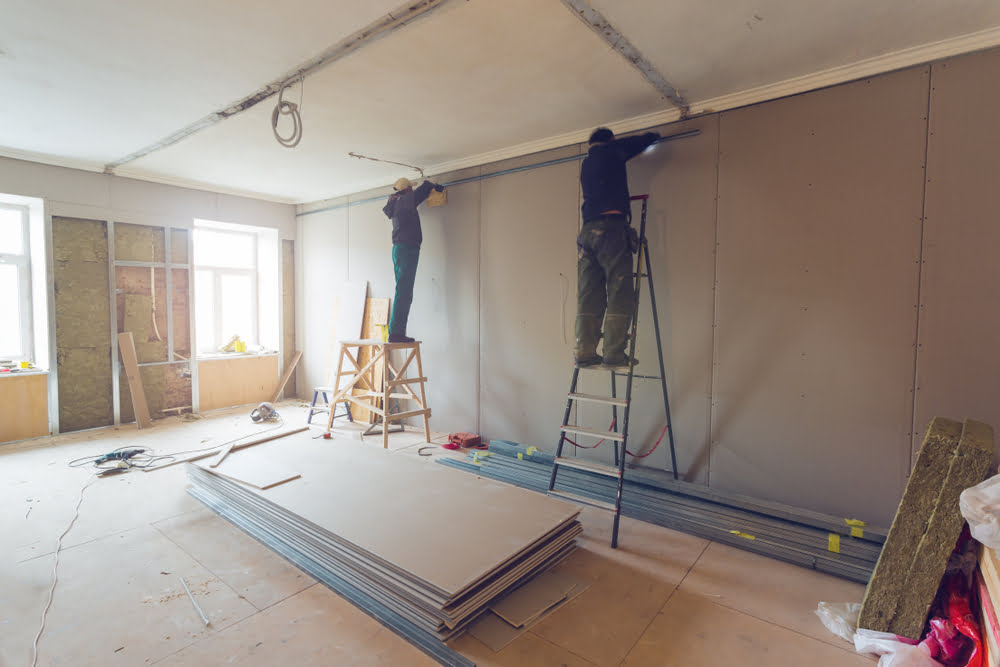

Environment
Key Details About Taxes Eco-Friendly Office Improvements
More businesses than ever are becoming eco-friendly these days. According to Emeritus, 60% of companies have a sustainability strategy.
There are a number of advantages of making your business more sustainable, such as attracting the growing number of customers that care about the planet. However, there are also a number of issues that you have to be aware of as well.
One of the biggest things that you have to take into consideration is taxes. Eco-friendly businesses are subject to the same tax code as everyone else.
You have to understand the tax implications of making eco-friendly home office improvements. We previously talked about some of the home improvements that you can make to help the planet. There are some that are specific to home offices as well, including:
- Installing bottleless water dispensers
- Using wireless electronics that are programmed to turn off
- Setting up a central air conditioning and heating system
While all of these things can help the planet and lower your energy bill, they can also lead to tax complications. Fortunately, eco-friendly business owners can also claim some deducation as well.
One expert we spoke with said that if you work from a spare bedroom, basement, or shed in your backyard, the IRS allows you to claim this space on your taxes if it meets an exclusive-use requirement and keeps track of both direct and indirect expenses separately.
The deduction applies to homeowners, tenants and those renting out part of their property such as a garage, studio, barn or houseboat. This is a great option for any home-based green business owners.
Green Tax Credits
You may want to see if the home improvements that you made qualify for green tax credits. The government allows homeowners to claim credits up to $3,200 under the Energy Efficient Home Improvement Credit. You should review the requirements and see if you qualify.
Depreciation
Home office expenses are tax deductible, though you may require doing a little additional mathematics than simply deducting actual business expenses. You can use either the IRS’s simplified method or regular deduction calculator.
To claim this deduction, you must devote a specific area of your home solely for business and regularly host clients or customers there. This work area could be any of these spaces: rooms in your house or garage; shed in your backyard or even an additional free-standing structure such as a barn.
Under this approach, it is necessary to keep receipts for equipment, furniture and other purchases made for your home office as well as track direct expenses like utilities, renter’s insurance and repairs incurred directly in relation to that space. Finally, multiply these expenses with their percentage share of total square footage to calculate your deduction amount.
Indirect Expenses
Indirect expenses refer to those costs related to maintaining your entire home, such as insurance and utilities costs or home warranty like Cinch Home Services’ warranty solutions, that can be deducted under home office deduction. They also can include repairs and improvements made around your house.
Mortgage interest, real estate taxes and homeowner’s insurance expenses typically fall under indirect expenses; however, according to IRS rules they can be deducted using the simplified method up to 300 square feet instead of having to track individual expenses on Schedule A separately.
For the purposes of meeting the Principal Place of Business requirement, this means designating a specific room within your home as the exclusive place for conducting your business activities. While not necessary to use an official office room as such, you should ensure it can be easily identified from other parts of your home – you might even use curtains or another method of demarkation to mark its borders and distinguish its purpose.
Capital Gains Tax
Home office expenses can be complex to calculate. To help, the IRS offers two methods for deducting them – either using a percentage of square footage in your home as the basis or by counting only square feet used exclusively for business, up to an annual maximum of $1,500. While using the simplified method may save time by eliminating actual expenses like mortgage interest payments, property taxes, homeowners insurance premiums and utilities from your records, it still may have its limitations.
To qualify for a home office deduction, the space must be regularly and exclusively used for business. Furthermore, separate structures on your property such as garages or barns qualify whereas spare bedrooms in houses do not.
Other Taxes
Home repairs that specifically benefit a room used exclusively for business are fully deductible. Any indirect expenses such as roof repair costs or electricity upgrades that keep it functioning for business use – like roof or electricity upgrades – will be depreciable depending on its usage over time.
To claim the home office deduction, you must demonstrate that part of your home is used regularly and exclusively for trade or business activities. Depending on your occupation, this might involve creating an area to work that has clear physical borders around it from other parts of your home.
You may claim a deduction for owning and living in any combination of a house, townhouse, apartment or condominium as well as structures on your property such as an unattached garage, studio, barn or greenhouse – though you cannot use it against rental properties or any part of your home that functions as a hotel, motel or inn.
Eco-Friendly Home Businesses Need to Understand the Tax Implications of Home Office Improvements
There are a lot of nuances of the tax code when you run an eco-friendly business. You will want to make sure that you understand the rules, especially if you are making green home improvements.


 Environment12 months ago
Environment12 months agoAre Polymer Banknotes: an Eco-Friendly Trend or a Groundswell?

 Features11 months ago
Features11 months agoEco-Friendly Cryptocurrencies: Sustainable Investment Choices

 Features12 months ago
Features12 months agoEco-Friendly Crypto Traders Must Find the Right Exchange

 Energy11 months ago
Energy11 months agoThe Growing Role of Solar Panels in Ireland’s Energy Future



























